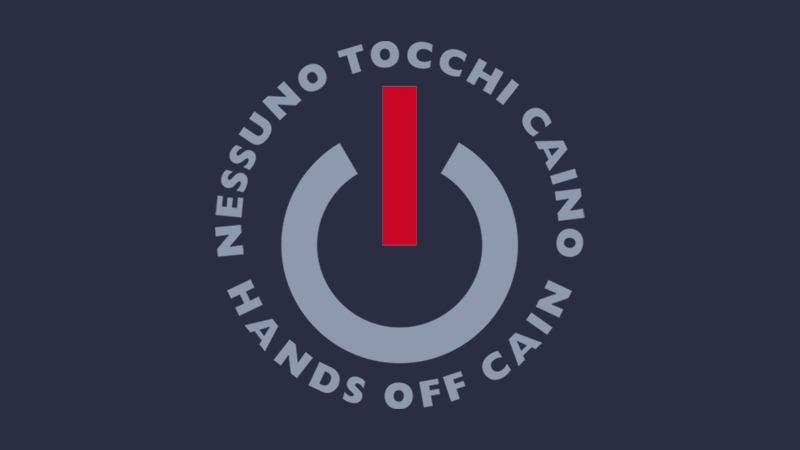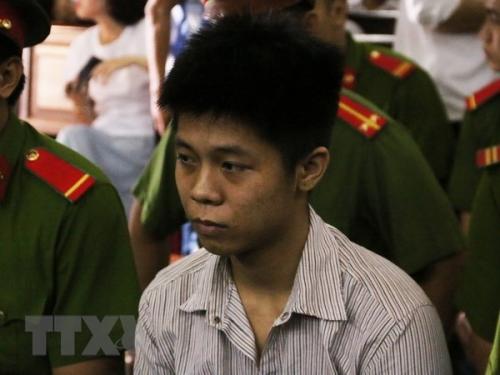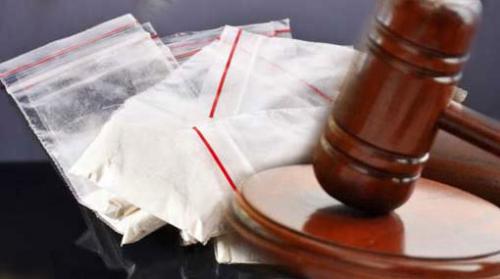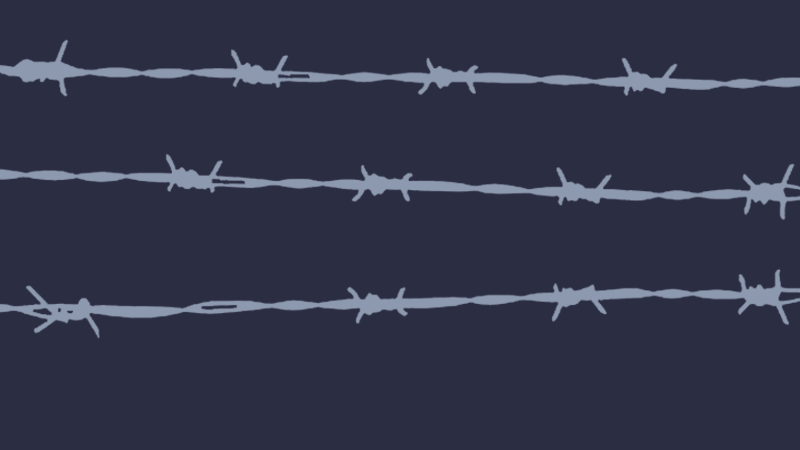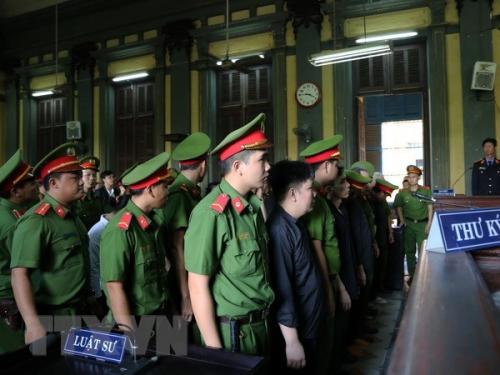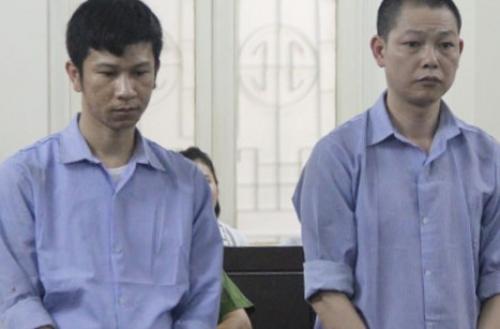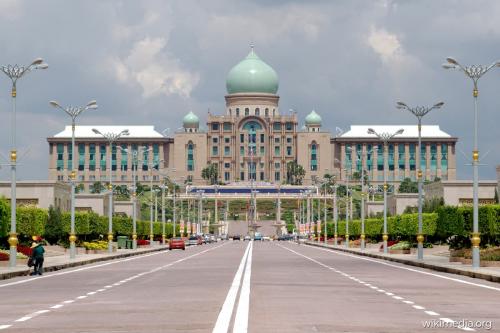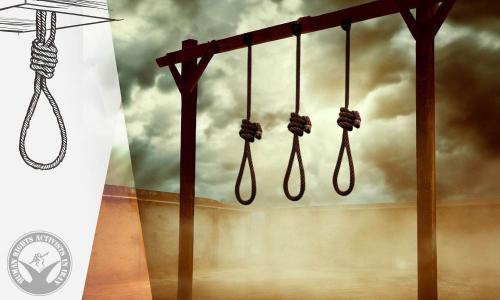situation:Capital punishment remains for 18 crimes such as murder, armed robbery, drug trafficking, and sexual abuse of children. Six political acts perceived as “threats against national security” carry the death penalty as a maximum sentence.
In 1985, the Penal Code stipulated 29 charges subject to the death penalty. After that, the Code underwent four amendments, which brought the number of charges facing death to 44.
In 1999, the Code was revised again and the number of offences subject to the death penalty was reduced to 29. The Penal Code was also amended in 2009, which reduced to 22 the number of crimes punishable by the death penalty.
On 27 November 2015, an overwhelmingly majority in the National Assembly revised the Penal Code abolishing the death penalty for seven crimes and bringing the total number of capital offences from 22 to 15.
In principle, therefore, the number of crimes punishable by death in Vietnam should be 15. However, after a thorough study of the text, the
Vietnam Committee on Human Rights (VCHR) has found that 18 crimes incur capital punishment. In fact, the death penalty was effectively abolished on certain crimes but, in other cases, crimes were simply re-worded. For example, whereas the death penalty was abolished on former articles 193 and 194 on producing, trading in or possessing narcotics, the amended Code contains three articles (248, 250 and 251) condemning ostensibly similar crimes. It also adds one new “national security” crime on “terrorist activities aimed at opposing the people’s administration” (Article 113).
Death penalty for non-violent crimes, and for political motives and dissent In November 2015, Vietnam announced that it had abolished the death for seven crimes, including five non-violent offenses: disobeying orders in the military (Article 394); surrendering to the enemy, which is applicable in the army (Article 399); producing and trading in fake goods being food, foodstuffs or food additives (Article 193); illegally storing narcotics (Article 249); and illegally appropriating narcotics (Article 193). However, after a thorough study of the text, the
Vietnam Committee on Human Rights (VCHR) has found that the amended Code contains articles condemning ostensibly similar crimes.
The revised law also requires the commutation of the death penalty for corruption, if corrupt officials pay back at least 75 percent of the illegal money they made.
However, capital punishment may be applied for economic crimes such as embezzlement or accepting, offering bribes, and several political acts perceived as “threats against national security.”
In fact, the amended Penal Code keeps applying the death sentence to vague political crimes listed in the former penal code, now being part of Chapter VIII, including high treason (Article 108), activities aimed at overthrowing the people’s administration (Art. 109), espionage (Art.110), rebellion (Art.112), anti-government terrorism (Art.113), and sabotage of the Socialist Republic of Vietnam’s material-technical foundations.
The vagueness about crimes in Chapter VIII allows the government to interpret nonviolent political remarks or activities as “carrying out activities aimed at overthrowing the people’s administration,” which makes no distinction between violent acts such as terrorism, and the peaceful exercise of freedom of expression.
On 25 October 2017, it was reported that according to the amended code, five felonies including robbery, manufacturing and trading of fake food and medicine, destroying facilities crucial to national security, surrendering to the enemy, and disobeying orders of commanding officers will no longer be subject to the death penalty. The last two felonies are applicable to military personnel only. The highest punishment for these crimes will be reduced to life sentence. The amended Penal Code will also treat the felony of stockpiling, transporting, trading or appropriating narcotics under different articles. Currently, those guilty of the crime faces capital punishment as the higest sentence. Under the amended code, only the crimes of transporting and trading of narcotics are eigible for the death penalty, while those who stockpile or appropriate the illegal drugs will only face life imprisonment at most.
Additionally, criminals older than 75 years of age or those charged with corruption but had voluntarily submitted 75 percent of their embezzled property will be exempt from capital punishment.
In 2017, the National Assembly, also revised sections of the penal code to criminalize lawyers if they fail to report their own clients to authorities for a number of crimes, including national security violations.
In 2015 there were no reports of death sentences for crimes listed in Chapter VIII of the amended Penal Code. However, death sentences were imposed for financial crimes.
In 2016, at least 63 new death sentences were imposed, including 54 for drug-related offences, according to Amnesty International.
In 2017, at least 35 new death sentences were imposed, including 1 for murder,
3 for embezzlement and 31 for drug trafficking, according to Amnesty International.
The War on DrugsVietnam has enacted some of the strictest drug laws in Asia. According to the revision of the Penal Code in 2017 [see Chapter: Death penalty for non-violent crimes ] which will be into effect in January 2018 only the crimes of transporting and trading of narcotics are eigible for the death penalty, while those who stockpile or appropriate the illegal drugs will only face life imprisonment at most.
A 1997 law made possession or smuggling 100 grams or more of heroin, or 5 kilograms or more of opium, punishable by death. In July 2001, the People’s Supreme Court issued guidelines envisaging a 20-year jail term for defendants guilty of trafficking from 100 grams to 300 grams of heroin, life in jail for trafficking 300 grams to 600 grams, and capital punishment for 600 grams and upwards. The guidelines are not strictly implemented. In 2009, the Parliament removed the illegal use of drugs from the list of crimes punishable by death.
In November 2015, Vietnam reportedly revised the Penal Code abolishing the death penalty for seven crimes, including illegally producing, trading in or possessing narcotics. However, after a thorough study of the text, the
Vietnam Committee on Human Rights (VCHR) has found that the amended Code contains three articles (248, 250 and 251) condemning ostensibly similar crimes. Furthermore, capital punishment remains for drug trafficking.
Media reports have indicated that around half of all executions are for drug-related crimes and of the nearly 700 people on the death row in Vietnam, many of them are sentenced for drugs related crimes. What is more, of the t least 47 new death sentences were imposed in 2015, 27 are for drug-related offences. In 2016, at least 63 new death sentences were imposed, including 54 for drug-related offences, according to Amnesty International. In 2017, at least 35 new death sentences were issued, 31 for drug according to AI.
Top secret deathAfter a 2003 decision by the Vietnamese Government to classify death penalty data as a State secret, on 5 January 2004, the Government even made it an offence to report information on the death penalty. Before this decision, the head of the People’s Supreme Court showed the number of death sentences handed down by courts nationwide in an annual report to the National Assembly, which was broadcast live on national television.
Until 2004, Vietnam was known as one of the countries that liberally fall back on the death penalty in confronting crime: executions numbered typically between 80 and 100 per year, most of them involving drug-related crimes. In the years that followed, these numbers have apparently decreased.
Since death by firing squad was replaced by lethal injections in July 2011 and until the execution of 6 August 2013, when Vietnam executed its first death-row inmate via lethal injection, apparently, the authorities failed to execute anyone, initially due to a lack of necessary facilities and trained personnel, then because of a shortage of the drug used in lethal injections. In 2013, Vietnam has used the method to execute a total of at least eight people. According to local media reports, at least three executions were carried out in 2014; however, the real number could be much higher.
In December 2014, Tran Van Do, deputy chief justice of the Supreme People’s Court, said at a conference that courts around Vietnam sentence some 200 people to death every year.
As in previous years, the authorities have never officially released the number of people sentenced to death or executed in 2014. However, according to the findings of the Vietnam Human Rights Network based on internal exchanges between state agencies, during the first 9 months of 2014, 53 people were sentenced to death and 162 people were executed among a total of 742 death row inmates awaiting execution.
At least 1 execution was carried out in 2015; however, the real number could be much higher. It is likely that 100 executions took place in 2016, even if it could not be confirmed.
In 2015, at least 47 new death sentences were imposed, including 27 for drug-related offences and two for economic crimes, according to Amnesty International.
At least
1 execution was carried out in 2016 according national media but executions would be around 100.
According to a report of Viet Nam’s Ministry of Public Security, which was first published by a national media outlet in February 2017, 429 prisoners were executed between 8 August 2013 and 30 June 2016, at an average rate of 147 executions per year.
As of 1 July 2016,
681 people remained on death row. In 80% of cases, the capital sentence is under revision while 36 people died in death row in five years. From 1 July 2011 and 30 June 2016, 1,134 people have been sentenced to death.
On 16 March 2017, the Judicial Council of the Supreme People’s Court issued Resolution No. 03/2017/NQ-HDTP on the publication of Court’s judgments and decisions which will hall take effect from July 1st, 2017. According to this Resolution, judgments and decisions will be published on the Court’s web portal within 30 days of their pronouncement. The publication of the judgments would be subjected to restrictions under laws on national security, state secrets and other laws protecting the identity of the defendants or entities.
In 2016, 63 new death sentences have been imposed, including 54 for drug related crimes according to Amnesty Internal. Two men were exonerated from death row in 2016.
In 2017, at least 2 execution was carried out and at least 35 new death sentences were imposed, including 1 for murder, 3 for embezzlement and 31 for drug trafficking, according to Amnesty International. However, no elements emerged to consider that the average of around 100 executions per year, as resulted by the report of the Minister for Public Security of February 2017, has changed.
Conditions on death row are particularly inhumane. Three to four prisoners are detained in each cell. The cells are extremely unhygienic, with one latrine bucket and no ventilation. Prisoners are not allowed to leave their cells except to receive visits, which are extremely rare. Their legs are chained to a long pole, and they are generally lined up in order of execution – the first to be executed being nearest the door. Occasionally, for “humanitarian reasons,” prisoners are allowed to change places in the line.
Executions take place at 4.00 a.m. As prisoners are not informed in advance of their execution date, they stay awake in fear of being called, only sleeping at 6.00 a.m. when they know their turn has not come. Prisoners’ families are not informed of the execution until after it has taken place. Relatives are not informed beforehand, but are asked to collect the belongings of the executed two to three days after their death. In the past, bodies of executed criminals were held for three years before being released to families for funerals, but in 2006, the Ministry of Public Security proposed allowing families access to bodies immediately as long as they dispose of them hygienically.
The “humane” lethal injectionOn 17 June 2010, the 12
th National Assembly approved the Law on Execution of Criminal Sentences, according to which death sentences in Vietnam should be executed by lethal injection, instead of shooting. According to a paper issued by a key group of deputies, injection of poison was “a more humanitarian method” of execution than firing squads, because “it causes less pain to people being executed, costs less, and reduces psychological pressure on the executors.” Furthermore, lethal injection is said to be more advantageous than shooting because families of death-sentence criminals can take the bodies.
The condemned offenders will be injected lethal drugs by an automatic machine. The execution chamber would be equipped with a hospital gurney, or bed, with straps, IV (intravenous cannulas) lines, and heart rate monitors. The execution chamber is also equipped with a remote observation system to assure that the execution will be strictly supervised by the executive committee. According to the process of execution, the condemned prisoners will be brought to the execution chamber and then strapped to the bed. Their veins will be linked to the drug lines, which operate automatically. After that prison officials will check whether or not the prisoner is dead. If the first injection does not work, the condemned prisoners will be injected two or three more times with the standby lethal drugs to make sure that they really die.
In spite of the state’s recent building in 2014 of 5 national facilities to administer lethal injections, the transfer of death prisoners from provinces to the execution sites was so costly the government decided to resort to mobile execution chambers.
Executions with the new method were to begin as of 1 July 2011, when the Law on Execution of Criminal Sentences came into force, but they were delayed several times, initially due to a lack of necessary facilities and trained personnel, then because of a shortage of the drug used in lethal injections.
In May 2013, the Government issued a new law allowing domestically produced chemicals to be used to execute prisoners. The poison would be provided by the Ministry of Health, and includes the sensory paralysing drug, the drug that paralyses the musculoskeletal system and the drug to stop the heart’s activity.
On 6 August 2013, Vietnam executed its first prisoner by lethal injection, ending a two-year pause in capital punishment caused by difficulties in obtaining the needed chemicals. Nguyen Anh Tuan, a 27-year-old man from Hanoi convicted of murder and robbery, was executed with the new method in the morning at the Hanoi Police Prison.
Since Vietnam executed its first death-row inmate via lethal injection on 6 August 2013, the country has used the method to execute a total of at least 12 people, as of 31 December 2015.
Persecution of adherents to religious and spiritual movementsThe Constitution and other laws and policies provide for religious freedom. The Constitution, legal code, and a 2003 Communist Party Central Committee resolution on religion provide for freedom of belief and worship, as well as for non-belief; however, restrictions exist in policy.
The 2004 Ordinance on Religion and Belief and the 2005 Implementation Decree (Decree 22) serve as the primary documents governing religious practice. Both the ordinance and the 2005 decree reiterate citizens’ rights to freedom of belief and religion, but warn that the “abuse” of freedom of belief or religion “to undermine the country’s peace, independence, and unity” is illegal, and religious activities must be suspended if they “negatively affect the cultural traditions of the nation.” In November 2012, the Government issued Decree 92/2012 to replace Decree 22/ 2005 on 1 January 2013. The Committee on Religious Affairs (CRA) describes Decree 92 as a vehicle for adding administrative improvements to the original 2004 Ordinance on Religion and Belief and Decree 22. However, critics of the new decree are concerned that the decree constitutes a further bureaucratic restriction of religious practice.
The Government officially recognises Buddhism, Catholicism, Protestantism,
Hoa Hao,
Cao Dai, and Muslim religious organisations. Individual congregations within each of these religious groups must be registered as well. Some leaders and believers of alternative Buddhism, Protestantism,
Hoa Hao, and
Cao Dai organisations of these religions do not participate in the Government-approved religious associations. The
Unified Buddhist Church of Vietnam (UBCV), the
Hoa Hao Buddhists, the
Cao Dai groups, independent Protestant and Catholic house churches and Khmer Krom Buddhist temples, continue to face unwarranted abuses because of their attempts to organise independently of the Vietnamese Government, including the detention and imprisonment of individual members of these religious communities.
According to the 2018 Report by
Human Rights Watch, also ethnic Montagnards continues to face surveillance, intimidation, arbitrary arrest, and mistreatment by security forces. Authorities compelled members of independent Christian Montagnard religious groups to publicly denounce their faith. According to the United Nations Refugee Agency, UNHCR, Vietnam pressured the UN and refugee resettlement countries to not accept Montangnards. In April 2017, the People’s Court of Gia Lai province sentenced at least five Montagnards to 8 to 10 years in prison for the so-called crime of participating in independent religious groups not approved by the government.
United NationsIn January 2014, Vietnam was reviewed under the Universal Periodic Review of the UN Human Rights Council. At this second cycle of the UPR, Vietnam accepted recommendations to “fulfill the Government aim of limiting the use of capital punishment promptly by reducing the scope of crimes subject to the death penalty” and “reduce the number of offences punishable by the death penalty”. As a result, on 27 November 2015, the National Assembly adopted an amended Criminal Code which abolished the death penalty for an additional seven crimes. It also waived capital punishment for people aged 75 and more, and commuted death sentences to life imprisonment for official corruption if the officials paid back at least 75% of their illegal gains. The amended Criminal Code takes effect on 1st July 2016. Vietnam revised again the Penal Code in 2017 containing the use of the death penalty which will take effect in January 2018.
On December 17, 2018, Vietnam abstained again on the Resolution on a Moratorium on the Use of the Death Penalty at the UN General Assembly.


